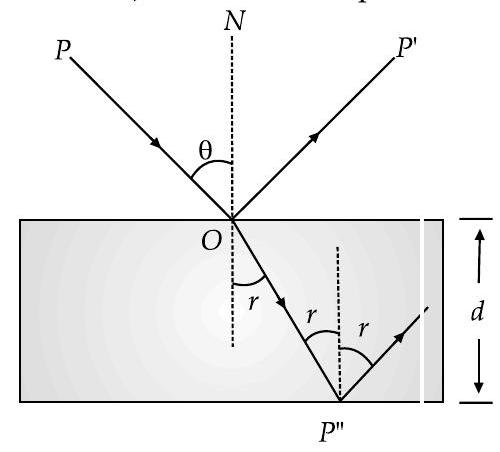Question: Q. 1. Consider a ray of light incident from air onto a slab of glass (refractive index
(a)
(b)
(c)
(d)
Show Answer
Solution:
Ans. Correct option : (a)
Explanation: If slab of a glass is placed in air, the wave reflected from the upper surface (from a denser medium) suffers a sudden phase change of

Now consider the diagram, the ray
Time taken to travel along
From Snell’s law,
Phase difference,
So, net phase difference
Very Short Answer Type Questions
(1 mark each)






